BRICS Summit in South Africa - Why Putin's absent, Ukraine's expectations
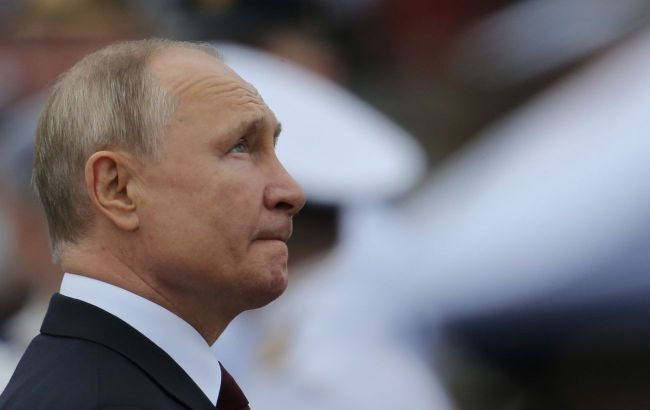 Russian Dictator Vladimir Putin avoids South Africa due to international arrest warrant (photo: Getty Images)
Russian Dictator Vladimir Putin avoids South Africa due to international arrest warrant (photo: Getty Images)
Today, on August 22, the three-day summit of BRICS member countries' leaders kicks off in South Africa. It is expected to address a range of political and economic issues, including Russia's war against Ukraine.
What is BRICS?
This is an informal intergovernmental association consisting of Brazil, Russia, India, China, and South Africa, known by the English acronym BRICS. It is neither a political nor an economic union in the classical sense.
The name was coined in the early 2000s by economist Jim O'Neill of the investment bank Goldman Sachs. He proposed the acronym BRIC to represent Brazil, Russia, India, and China, which, in his view, could become the world's leading economies by 2050.
Over the course of five years, these countries decided to come together as the BRIC group, and the puzzle was completed in 2010 when South Africa joined, transforming the group into BRICS. It's worth noting that the combined population of the member countries is estimated at 3.24 billion people, and their total GDP accounts for a quarter of the world economy, nearly 26 trillion dollars.
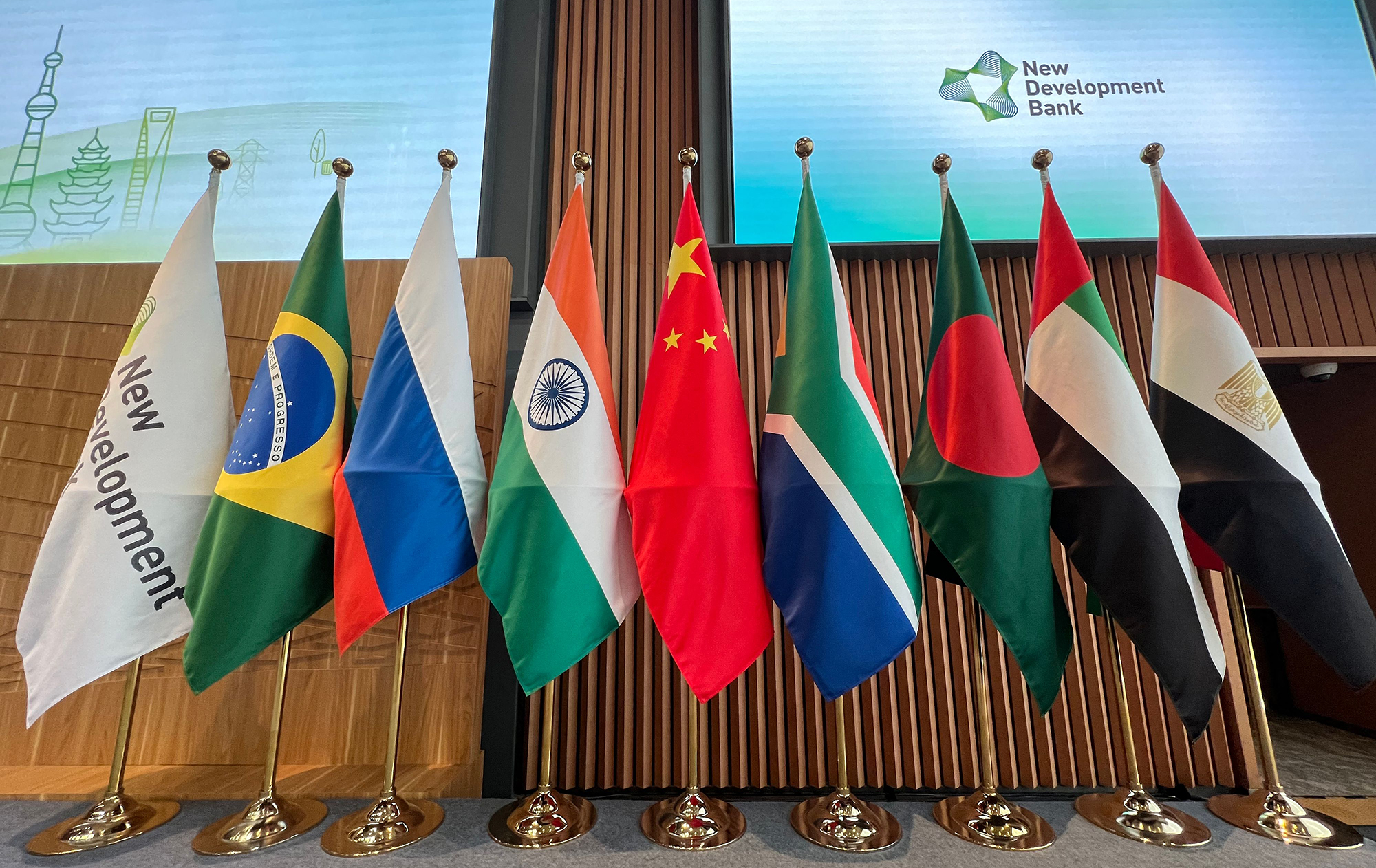
Photo: The BRICS group was formed as an alternative to Western blocs (Getty Images)
The group was created to reform international financial institutions like the IMF and World Bank. In 2014, BRICS established the New Development Bank (NDB) with headquarters in Shanghai, China, and a capital of $250 billion to provide funding for developing countries.
In addition to the founding members, Bangladesh, the UAE, and Egypt are also part of the NDB. According to information on the official website, Uruguay may join as well.
BRICS leaders' summits have been held annually since 2009. Today marks the start of the 15th meeting, taking place in Johannesburg, South Africa, and lasting until August 24.
What's the topic of the summit and what does Russia want?
The current summit was preceded by a June meeting of the BRICS foreign ministers in Cape Town (South Africa). One of its topics was the abandonment of the US dollar in mutual settlements and the introduction of an alternative currency.
As Bloomberg reported, participants turned to the NBD for consultations on how the new joint currency could function. South African Minister of Foreign Affairs Naledi Pandor did not hide that it would help bypass international sanctions imposed on Russia for its war against Ukraine.
"We want to ensure that we do not become victims of sanctions that have secondary consequences for countries that have no connection to the issues that led to the imposition of these sanctions," she said.
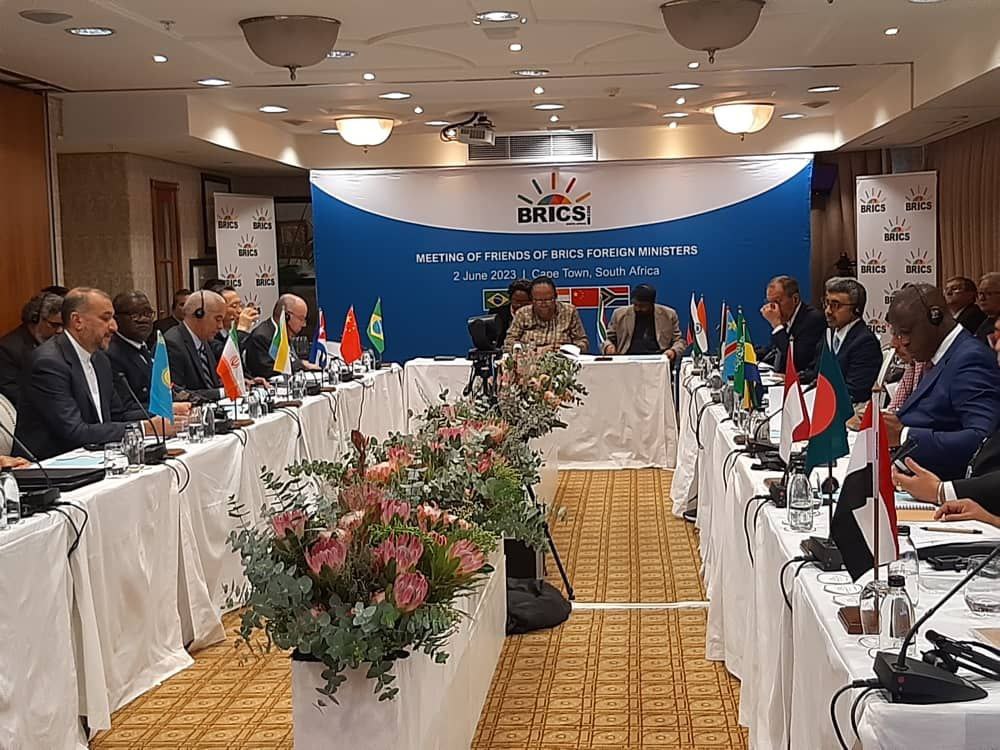
Photo: The BRICS ministerial meeting in Cape Town discussed the abandonment of the American dollar (mfa.ir)
Another topic was the expansion of BRICS. Heads of foreign ministries from Saudi Arabia, the United Arab Emirates, Egypt, and Kazakhstan participated in the ministerial meeting, expressing their intention to join the group. Clearly, the expansion will be the central theme of the summit in South Africa.
Previously, South African Ambassador to BRICS Anil Sooklal stated that 22 countries had officially applied for membership, with an equal number of informal inquiries.
According to Reuters, the second topic will be the work of the NBD bank with a focus on lending in local currencies. Participants will also discuss improving economic ties, and the third day of the summit will be dedicated to negotiations with leaders of other invited countries. Special attention will be given to the relationship between BRICS and African nations.
As reported by the Financial Times, it is unlikely that more than two dozen interested parties will receive invitations to join the group immediately. Moreover, there are differing positions within the BRICS itself. The publication notes that China wants to see not only an economic but also a political force in the alliance, whereas India and Brazil are against this.
It's worth noting that Russia is also interested in the expansion of BRICS as it seeks to gain as many allies as possible amidst international isolation.
The Ukrainian Center for Strategic Communications and Information Security emphasizes that Russia views BRICS primarily as an anti-Western coalition. It hopes to gain new opportunities for trade and investments in these countries, compensating for losses from sanctions.
Countries in BRICS can indeed support Russia in various matters, but they are not inclined to blindly cater to Moscow's demands. Today, Russia's position as an international outcast does not promote integration, as its "friends" are closely tied to Western economies. Moreover, among its BRICS partners, the Russian side cannot claim leadership because its economy lags behind others and is expected to further diminish in the future.
The summit in South Africa is themed "Partnership for Shared Prosperity, Sustainable Development, and Inclusive Multilateralism." Considering all factors, it implies the creation of a multipolar political landscape and a bloc to counterbalance the US and EU alliance.
War and what to expect for Ukraine
The participants of the summit will not overlook the topic of the Russian-Ukrainian war. President of South Africa, Cyril Ramaphosa, emphasized this in July after negotiations with Ukrainian President Volodymyr Zelenskyy.
"When we meet, we will discuss various crises happening around the world. We will also discuss the crisis between Russia and Ukraine," he emphasized in July after negotiations with Ukrainian President Volodymyr Zelenskyy.
However, one should not expect breakthrough peace initiatives from the BRICS group. This is partly because the group members show reluctance towards the war in Ukraine. In the first vote during the extraordinary session of the UN General Assembly on February 24, 2022, only Brazil supported the resolution condemning the aggression. China, India, and South Africa abstained.
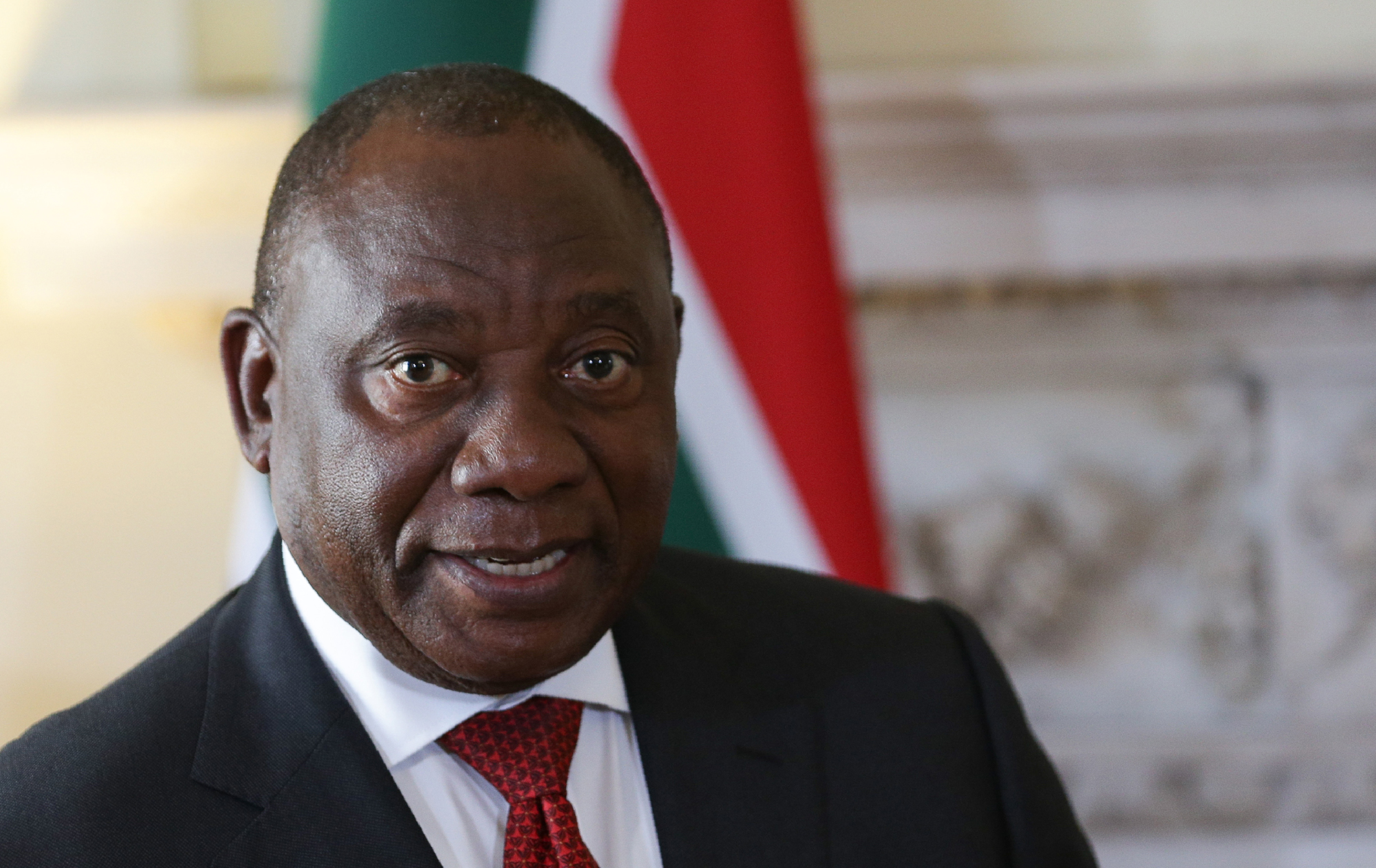
Photo: President of South Africa Cyril Ramaphosa stated that the summit will discuss Russia's war against Ukraine (Getty Images)
Thus, they directly or indirectly played into the aggressor's hands. From this, it followed that Ukraine could hardly count on the support of large developing countries in its confrontation with Russia. And over the past year and a half, the situation has not changed significantly.
However, in 2023, there are signs of interest in resolving the conflict. Although, as it turns out, their concepts fundamentally differ from the Ukrainian formula for peace, as they allow for compromises and concessions from Kyiv.
China: Its "peace plan" was published on the anniversary of the Russian invasion. The main provisions concern a ceasefire and preventing nuclear escalation, but it mainly emphasizes the need for peaceful negotiations, halting arms supplies to Ukraine, and lifting sanctions against Russia. Moreover, there is no clear position on the withdrawal of Russian troops and guarantees that the attack will not be repeated.
Brazil: In the spring, President Luiz Inácio Lula da Silva suggested that, for the sake of peace, Ukraine could supposedly compromise by giving up part of Russia's territory, referring to the occupied Crimea. In his view, only such an approach could put an end to a full-scale war. Predictably, this proposal was criticized by the Ukrainian side, after which Silva clarified that territorial issues should be "resolved by Ukrainians and Russians."
South Africa (PAR): The African plan was publicly announced in June when a delegation led by South African President Cyril Ramaphosa visited Kyiv and Moscow with a so-called peace and diplomatic process encouragement mission. It includes a series of measures, including the withdrawal of Russian troops and nuclear weapons from Belarus in exchange for suspending the international arrest warrant for Putin and easing sanctions against Russia. It is noteworthy that this plan found support in China.
India: In mid-July, after Indian Prime Minister Narendra Modi's trip to Paris, it became known that India, in partnership with France, would prepare a plan to end the war that would differ from previously proposed initiatives. The details of this plan are unknown, but there are suspicions that it might aim to freeze the conflict or initiate prolonged diplomatic negotiations.
It is evident that the sincerity of these "peacemakers" from BRICS is questionable. More likely, it represents an attempt by giants like China and India to impose their vision of the world order on Global South countries through the example of the war in Ukraine.
Why do BRICS countries befriend Russia?
The partnership relations within BRICS are based on a multipolar vision of the global order and a shared position on the reform of global institutions such as the United Nations, IMF, and the World Bank. Brazil, India, China, and Russia present a united front as an anti-Western model, taking into account the balance of economic power and leadership in their respective regions.
China and India pursue their own foreign policy interests. Therefore, their somewhat detached or neutrally supportive stance towards the escalation of the conflict in Ukraine was predictable.
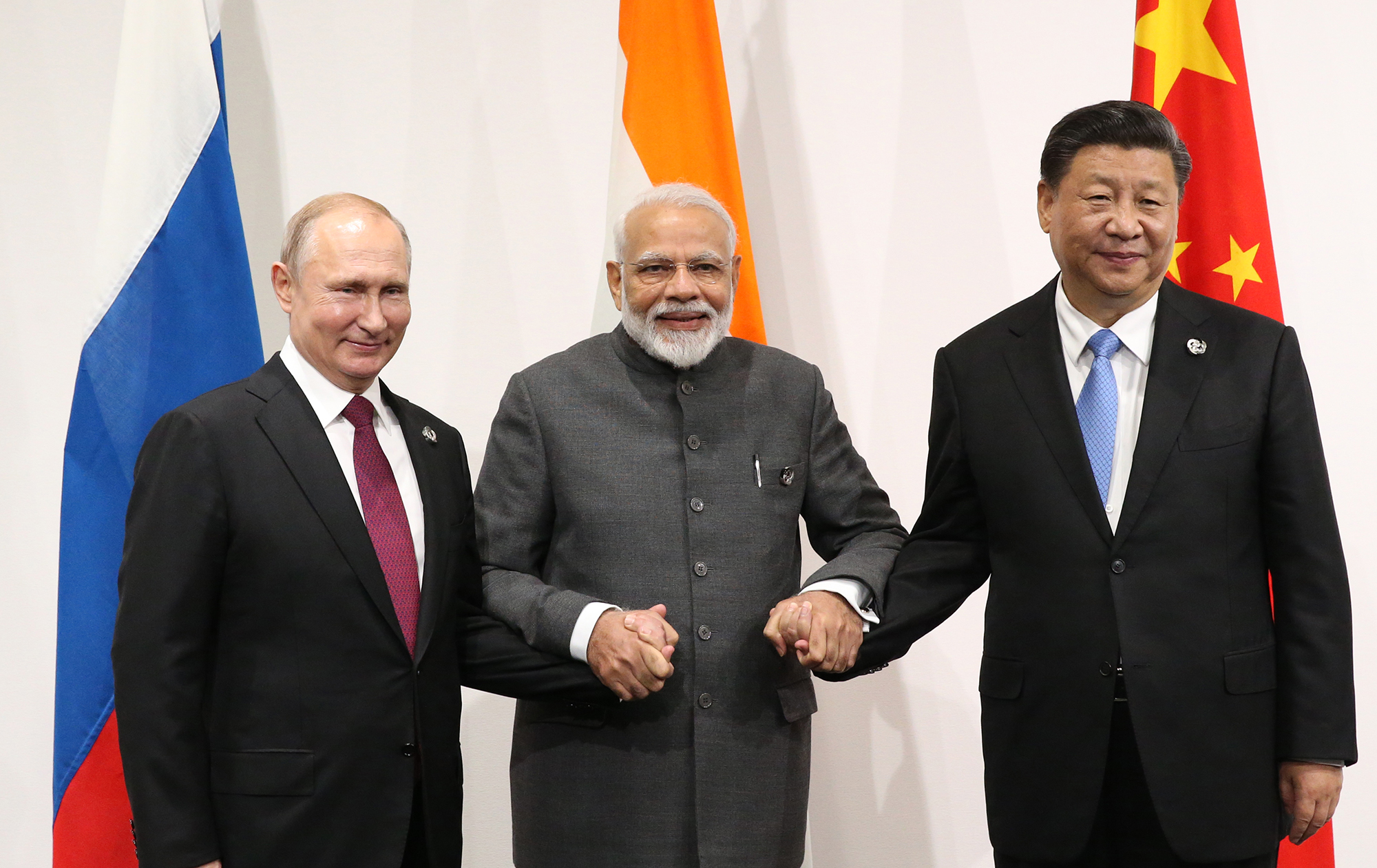
Photo: China and India befriend Russia based on their own interests (Getty Images)
In particular, China seeks to challenge US global leadership and leverages its friendship with Russia to establish economic and trade dependencies with Moscow. India, to a lesser extent, sympathizes with Russia in this regard but is driven by other considerations. Moscow is India's military partner, helping India counter China, with whom it has ongoing conflicts along their border.
As for South Africa, African countries traditionally have been Moscow's satellites since the time of the Soviet Union. Today, the friendship is driven by economic reasons, as exports to Russia constitute a significant portion of South Africa's exports.
Recently, the Minister of Foreign Affairs of Ukraine, Dmytro Kuleba, stated that Kyiv intends to secure the support of African countries to weaken Russian dominance. According to him, the continent needs systematic and long-term efforts.
"We don't want to be another Russia. Our strategy is not to replace Russia but to free Africa from Russian influence," he emphasized in an interview with AFP.
Why isn't Putin participating and what does it mean?
As reported by Reuters, the summit will be attended by South African President Cyril Ramaphosa, Brazilian President Luiz Inácio Lula da Silva, Indian Prime Minister Narendra Modi, and Chinese leader Xi Jinping. Vladimir Putin will participate remotely and will be represented in Johannesburg by the Foreign Minister, Sergey Lavrov.
The reason for Putin's absence is an International Criminal Court arrest warrant. In March, he was charged with a war crime related to the deportation of Ukrainian children from occupied territories.
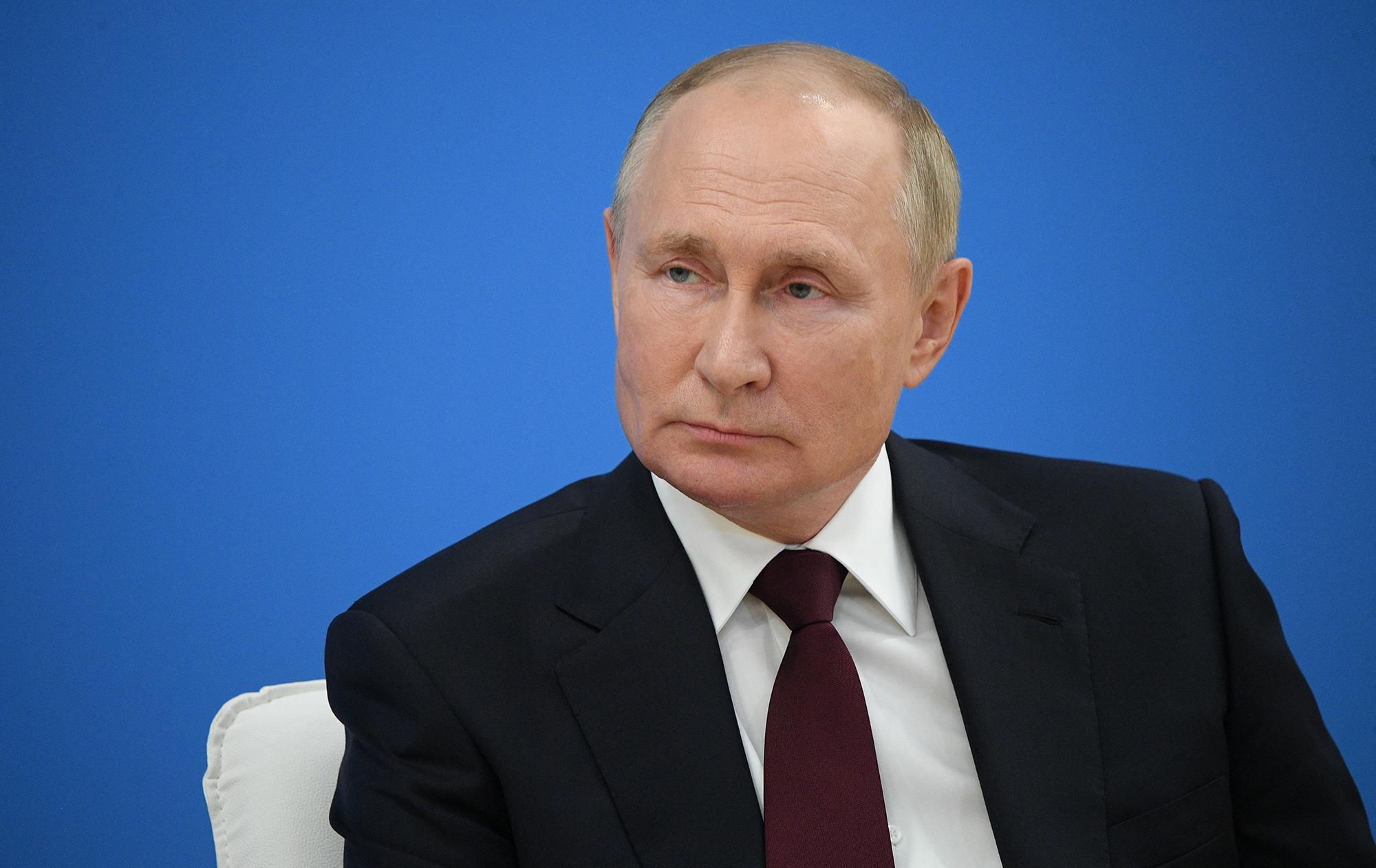
Photo: Vladimir Putin declined the trip to South Africa and removed the possibility of arrest under the International Criminal Court warrant (Getty Images)
According to the International Criminal Court's ruling, Putin is subject to immediate arrest by countries that have ratified the Rome Statute, and South Africa is one of the parties to this international document.
Remarkably, the visit of the Russian dictator was so important that the South African authorities sought ways to circumvent this requirement. The government even considered the possibility of granting him diplomatic immunity. One minister even suggested legislative changes to allow the country to withdraw from the Rome Statute before the BRICS summit.
The opposition was against this and filed a lawsuit with the Supreme Court of the Gauteng province. They demanded that the authorities commit to implementing the ICC ruling. As a result, in the second half of July, the South African government officially requested an arrest warrant, and the Kremlin announced that Putin would participate in the summit remotely.
As CNN reports, Putin's absence at the summit speaks volumes about the tightening international isolation and narrowing horizons for the dictator. This is particularly significant given that he is arguably one of the staunchest proponents of the "multipolar world" concept that underpins BRICS. Essentially, as of today, the doors remain open to him primarily in China, Belarus, Iran, and Central Asian countries.

